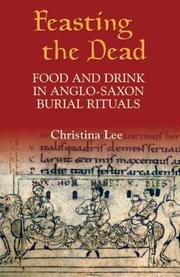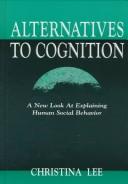| Listing 1 - 10 of 23 | << page >> |
Sort by
|
Book
ISBN: 9780826429414 0826429416 1628929162 1441142967 1441193022 9781441142962 9781441193025 9781628929164 Year: 2008 Publisher: New York : Continuum,
Abstract | Keywords | Export | Availability | Bookmark
 Loading...
Loading...Choose an application
- Reference Manager
- EndNote
- RefWorks (Direct export to RefWorks)
Violating Time explores the complexity of nonlinear and disrupted cinematic time - the delayed period between the actual recording of an event and its eventual public viewing; the recreation of an historical event years after it has occurred; a nostalgic return to retro in the postmodern era; and manipulation of the clock in time travel movies to alter the course of events and create new cultural geographies of time, space and experience. This collection investigates the politics of tactical remembering and forgetting - the selective editing of time and narrative - not only as acts of subversion but also of creative potential and empowerment. It argues that representations of the past and projections of the future are not isolated commentaries of a romantic yesterday or grand visions of tomorrow. Rather, they evoke the preoccupations and anxieties of the present, whether it is the skepticism of nostalgic kitsch (The Royal Tenenbaums) or the projected post-millennial fears of disappearing histories and mutating pasts, manufactured memories and loss of identity (Eternal Sunshine of the Spotless Mind and 2046).
Temps --- Mémoire --- Time in motion pictures. --- Memory in motion pictures. --- Au cinéma --- Time in motion pictures --- Memory in motion pictures --- Music, Dance, Drama & Film --- Film --- Motion pictures --- Au cinéma. --- Mémoire --- Au cinéma.

ISBN: 9781843831426 1843831422 9781846155420 9786612185397 128218539X 1846155428 Year: 2007 Publisher: Woodbridge, UK ; Rochester, NY : Boydell Press,
Abstract | Keywords | Export | Availability | Bookmark
 Loading...
Loading...Choose an application
- Reference Manager
- EndNote
- RefWorks (Direct export to RefWorks)
Anglo-Saxons were frequently buried with material artefacts, ranging from pots to clothing to jewellery, and also with items of food, while the funeral ritual itself was frequently marked by feasting, sometimes at the graveside. The book examines the place of food and feasting in funerary rituals from the earliest period to the eleventh century, considering the changes and transformations that occurred during this time, drawing on a wide range of sources, from archaeological evidence to the existing texts. It looks in particular at representations of funerary feasting, how it functions as a tool for memory, and sheds light on the relationship between the living and the dead.
CHRISTINA LEE is a lecturer in the School of English Studies at the University of Nottingham.
Anglo-Saxons --- Funeral rites and ceremonies, Medieval --- Food habits --- Funérailles --- Habitudes alimentaires --- Funeral customs and rites --- History --- Rites et cérémonies funéraires --- Rites et cérémonies médiévaux --- Histoire --- Great Britain --- Grande-Bretagne --- 15.70 history of Europe. --- Anglo-Saxon period. --- Anglosaxare --- Begravningsseder --- Bestattung. --- Food habits. --- Funeral rites and ceremonies --- Funeral rites and ceremonies. --- Funerals. --- Ritus. --- Trinken. --- Historia --- 500-1000. --- To 1500. --- Angelsachsen. --- England. --- Essen. --- Great Britain. --- Gro�britannien. --- Storbritannien --- Eating --- Food customs --- Foodways --- Human beings --- Habit --- Manners and customs --- Diet --- Nutrition --- Oral habits --- Funerals --- Mortuary ceremonies --- Obsequies --- Rites and ceremonies --- Burial --- Cremation --- Cryomation --- Dead --- Mourning customs --- Saxons --- Anglo-Saxon. --- Archaeology. --- Burial Rituals. --- Drink. --- Food. --- Funerary Feasting.

ISBN: 9780805826548 Year: 1998 Publisher: Mahwah (N.J.) Erlbaum
Abstract | Keywords | Export | Availability | Bookmark
 Loading...
Loading...Choose an application
- Reference Manager
- EndNote
- RefWorks (Direct export to RefWorks)
Digital
ISBN: 9781846155420 Year: 2007 Publisher: Woodbridge Boydell Press
Abstract | Keywords | Export | Availability | Bookmark
 Loading...
Loading...Choose an application
- Reference Manager
- EndNote
- RefWorks (Direct export to RefWorks)
Nutritionary hygiene. Diet --- History of the United Kingdom and Ireland --- anno 400-499 --- anno 500-1199 --- England --- Great Britain
Book
ISBN: 9781409408505 9781409452362 9781315547503 9781134759590 9781134759668 9781138109049 Year: 2012 Volume: *7 Publisher: Farnham ; Burlington Ashgate
Abstract | Keywords | Export | Availability | Bookmark
 Loading...
Loading...Choose an application
- Reference Manager
- EndNote
- RefWorks (Direct export to RefWorks)
anno 1600-1699 --- anno 1500-1599 --- Asia --- Europe --- S02/0300 --- S02/0310 --- China: General works--Chinese culture and the West and vice-versa --- China: General works--Intercultural dialogue --- Public opinion --- Opinion, Public --- Perception, Public --- Popular opinion --- Public perception --- Public perceptions --- Judgment --- Social psychology --- Attitude (Psychology) --- Focus groups --- Reputation --- History --- China --- East Asia --- Euorpe --- Asia, East --- Asia, Eastern --- East (Far East) --- Eastern Asia --- Far East --- Orient --- Cina --- Kinë --- Cathay --- Chinese National Government --- Chung-kuo kuo min cheng fu --- Republic of China (1912-1949) --- Kuo min cheng fu (China : 1912-1949) --- Chung-hua min kuo (1912-1949) --- Kina (China) --- National Government (1912-1949) --- China (Republic : 1912-1949) --- People's Republic of China --- Chinese People's Republic --- Chung-hua jen min kung ho kuo --- Central People's Government of Communist China --- Chung yang jen min cheng fu --- Chung-hua chung yang jen min kung ho kuo --- Central Government of the People's Republic of China --- Zhonghua Renmin Gongheguo --- Zhong hua ren min gong he guo --- Kitaĭskai︠a︡ Narodnai︠a︡ Respublika --- Činská lidová republika --- RRT --- Republik Rakjat Tiongkok --- KNR --- Kytaĭsʹka Narodna Respublika --- Jumhūriyat al-Ṣīn al-Shaʻbīyah --- RRC --- Kitaĭ --- Kínai Népköztársaság --- Chūka Jinmin Kyōwakoku --- Erets Sin --- Sin --- Sāthāranarat Prachāchon Čhīn --- P.R. China --- PR China --- Chung-kuo --- Zhongguo --- Zhonghuaminguo (1912-1949) --- Zhong guo --- Chine --- République Populaire de Chine --- República Popular China --- Catay --- VR China --- VRChina --- 中國 --- 中国 --- 中华人民共和国 --- Jhongguó --- Bu̇gu̇de Nayiramdaxu Dundadu Arad Ulus --- Bu̇gu̇de Nayiramdaqu Dumdadu Arad Ulus --- Bu̇gd Naĭramdakh Dundad Ard Uls --- Khi︠a︡tad --- Kitad --- Dumdadu Ulus --- Dumdad Uls --- Думдад Улс --- Kitajska --- China (Republic : 1949- ) --- Council of Europe countries --- Eastern Hemisphere --- Eurasia --- Foreign public opinion, European --- History. --- Relations --- Intellectual life --- PRC --- P.R.C. --- BNKhAU --- БНХАУ
Book
ISBN: 1526104024 1784996971 9781784996970 9781784991203 1784991201 1784996351 9781784996352 9781526104021 Year: 2016 Publisher: Manchester : Baltimore, Md. : Manchester University Press, Project MUSE,
Abstract | Keywords | Export | Availability | Bookmark
 Loading...
Loading...Choose an application
- Reference Manager
- EndNote
- RefWorks (Direct export to RefWorks)
The author examines a broad range of fiction and non-fiction works, many relatively unknown, to analyse how discourses about non-elites, conversos and moriscos, reveal anxieties in their Old Christian readers and authors.
Spanish literature. --- Social classes. --- Group identity. --- Ethnicity. --- Social groups in literature. --- Group identity --- Ethnicity --- Spanish literature --- Social classes --- Ethnic identity --- Cultural fusion --- Multiculturalism --- Cultural pluralism --- Collective identity --- Community identity --- Cultural identity --- Social identity --- Identity (Psychology) --- Social psychology --- Collective memory --- Class distinction --- Classes, Social --- Rank --- Caste --- Estates (Social orders) --- Social status --- Class consciousness --- Classism --- Social stratification --- History. --- History and criticism. --- History --- Spain --- Espagne --- Espainiako Erresuma --- España --- Espanha --- Espanja --- Espanya --- Estado Español --- Hispania --- Hiszpania --- Isupania --- Kingdom of Spain --- Regne d'Espanya --- Reiaume d'Espanha --- Reino de España --- Reino d'Espanya --- Reinu d'España --- Sefarad --- Sepharad --- Shpanie --- Shpanye --- Spanien --- Spanish State --- Supein --- イスパニア --- スペイン --- Social conditions --- Social groups in literature --- History and criticism --- Conversos. --- Expulsion. --- Hidalguia. --- Limpieza. --- Moriscos. --- New Christians. --- Nobility. --- Social mobility.
Book
ISBN: 9780755639328 9780755639298 9780755639304 9780755639311 9780755639335 Year: 2023 Publisher: London Bloomsbury Academic
Abstract | Keywords | Export | Availability | Bookmark
 Loading...
Loading...Choose an application
- Reference Manager
- EndNote
- RefWorks (Direct export to RefWorks)
Book
ISBN: 9780190916145 0190916141 Year: 2021 Publisher: Oxford Oxford University Press
Abstract | Keywords | Export | Availability | Bookmark
 Loading...
Loading...Choose an application
- Reference Manager
- EndNote
- RefWorks (Direct export to RefWorks)
Eighty percent of Filipinos (about 80 million people) identify with the Catholic faith. Visitors to the Philippines might find it surprising that images of Catholic saints, the Child Christ, and the Virgin Mary can be seen in all kinds of public and private spaces throughout this Asian country, such as in restaurants, shopping malls, pasted to walls, painted on buses, and of course, in-home altars. Many of these saints bear Spanish names and their legends almost always date to the period of Spanish colonialism.Saints of Resistance: Devotions in the Philippines under Early Spanish Rule explores why, in spite of their fraught history with Spanish colonialism (which ended in 1898), Filipinos have staunchly held on to the faith in their saints. This is the first scholarly study to focus on the dynamic life of saints and their devotees in the Spanish Philippines, from the sixteenth through the early part of the eighteenth century. The book offers an in-depth analysis of the origins and development of the beliefs and rituals surrounding some of the most popular saints in the Philippines, namely, Santo Niño de Cebu, Our Lady of Caysasay, Our Lady of La Naval, and Our Lady of Antipolo. Christina Lee recovers the voices of colonized Philippine subjects as well as those of Spaniards who, through the veneration of miraculous saints, projected and relieved their grievances, anxieties, and histories of communal suffering. Based on critical readings of primary sources, the book traces how individuals and their communities often refashioned iconographic devotions to the Holy Child and to the Virgin Mary by introducing non-Catholic elements derived from pre-Hispanic, animistic, and Chinese traditions. Ultimately, the book reveals how Philippine natives, Chinese migrants, and Spaniards reshaped the imported devotions as expressions of dissidence, resistance, and survival.
Saints --- Philippines --- Spain --- History --- Religious aspects --- Catholic Church. --- Colonies. --- Culte des saints
Book
ISBN: 0755639324 0755639308 0755639316 Year: 2023 Publisher: London : London : Bloomsbury Academic, Bloomsbury Publishing (UK),
Abstract | Keywords | Export | Availability | Bookmark
 Loading...
Loading...Choose an application
- Reference Manager
- EndNote
- RefWorks (Direct export to RefWorks)
Precariousness has become a defining experience in contemporary society, as an inescapable condition and state of being. Living with Precariousness presents a spectrum of timely case studies that explore precarious existences - at individual, collective and structural levels, and as manifested through space and the body. These range from the plight of asylum seekers, to the tiny house movement as a response to affordable housing crises; from the global impacts of climate change, to the daily challenges of living with a chronic illness. This multidisciplinary book illustrates the pervasiveness of precarity, but furthermore shows how those entanglements with other agents, human or otherwise, that put us at risk are also the connections that make living with (and through) precariousness endurable.
Economic security --- Human security --- Precarious employment --- Social aspects --- Social aspects.
Book
ISBN: 9781526134349 Year: 2018 Publisher: Manchester : Manchester University Press,
Abstract | Keywords | Export | Availability | Bookmark
 Loading...
Loading...Choose an application
- Reference Manager
- EndNote
- RefWorks (Direct export to RefWorks)
Social history. --- Histoire sociale. --- Social classes --- Classes sociales --- Spanish literature --- Littérature espagnole --- Jews --- Juifs --- Muslims --- Musulmans --- Christians --- Chrétiens --- Ethnicity --- Ethnicité --- Group identity --- Identité collective --- History. --- Histoire.
| Listing 1 - 10 of 23 | << page >> |
Sort by
|

 Search
Search Feedback
Feedback About UniCat
About UniCat  Help
Help News
News